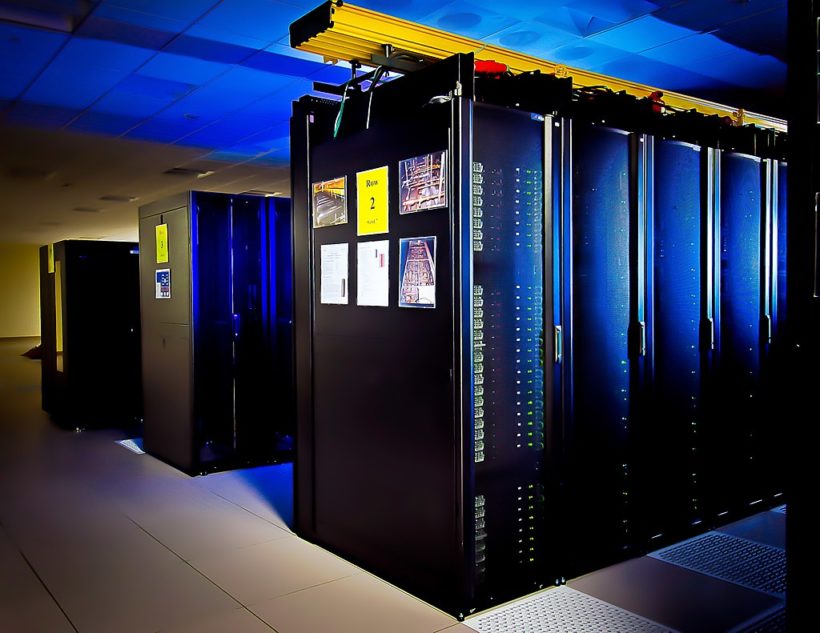 By MIRIAM ACZEL
By MIRIAM ACZEL
The global energy sector produces and uses massive amounts of data. To further enhance the power of this wealth of energy-related data, artificial intelligence technologies and methods are increasingly utilized in a wide range of energy products and services.
Autonomous Energy Grids
As global electric grids draw energy from an expanding variety of sources, including renewables such as solar, wind, geothermal and others, the operation and maintenance of these multi-source energy grids becomes ever more complex. These new energy sources and their growing significance in our energy systems means a wealth of new data—but also means that energy data is increasingly complex. Because of this, there is a growing role for use of artificial intelligence to enhance the efficacy and efficiency of data analysis, and bolster grid stability.
For example, in September of 2017, the United States Department of Energy awarded a research grant to researchers at Stanford University in order to use artificial intelligence to enhance electric grid stability: by programming the ‘autonomous grid’ with past data on power fluctuations and areas of weakness or vulnerability in the grid, this autonomous model will be able to better respond to energy gaps and issues—independently.
Smarter Grids, Smarter Energy Systems
Smart grids can improve management of multiple types of energy sources simultaneously. For example, Siemens has released a software package to operate grids autonomously known as active network management (ANM), which monitors how a grid interacts with different energy loads and makes adjustments to enhance efficiency–automatically. Importantly, the ANM can make changes to grids in response to the availability of new energy producers such as solar parks or fields, or when new consumers of energy increase demand. The technology even opens the potential for charging electric vehicles directly through the electric grid.
Energy Storage
AI is helping to make energy use more efficient through its application in energy storage systems. As new energy storage technologies are being developed and storage capacity increases, AI technologies are playing a bigger role in optimizing energy usage and efficiency. For example, the California-based energy optimization service provider Stem has developed ‘Athena’—the first AI solution for energy storage and virtual power plants—which employs artificial intelligence to map out energy use, enabling customers to monitor changes in energy rates and therefore to better and more efficiently use energy storage.
Reducing Energy Consumption
Through monitoring the energy consumption patterns of both businesses and organizations and individuals, AI companies and technologies can help optimize energy usage. For example, the ‘smart’ thermostat Nest adapts in response to consumer behavior patterns in order to reducethe amount of energy consumed. Once Nest is installed in a home, it begins to track and learn the behavioral habits of users, and adjusts temperature levels accordingly. According to Nest, this smart technology has allowed customers to save over 10% on their heating costs.
Transportation: Learning from Nature to ‘Bee’ Smarter, Cooler, and Better Coordinated
Madrid’s metro system, Metro de Madrid, in conjunction with Accenture, has created and implemented a new AI-based ‘self-learning’ ventilations system that both minimizes the amount of emissions, reduces total costs, and ensures better air quality in metro stations. This novel artificial intelligence system has not only enabled Metro de Madrid to reduce total energy costs for ventilation by one quarter, and to cut carbon dioxide emissions by nearly 2000 tons annually, but has also increased the comfort of metro commuters. An average of 2.3 million commuters use Metro de Madrid’s network of nearly 300 kilometers of rail track and 301 stations every day. In order to help travelers stay cool within the metro system–especially during the summer, Metro de Madrid employs nearly 900 ventilation fans, which led to an annual consumption of up 80 gigawatt hours of energy.
Because of this, Madrid Metro’s ventilation experts worked with Accenture Applied Intelligence to create a new system that drew inspiration from nature: the coordinated foraging system of a bee colony. The system’s algorithm for optimization uses large amounts of data to examine all possible combinations of metro station structural characteristics, air temperature, frequency of trains, energy price, and number of metro passengers—all in real-time throughout the day. This novel algorithm is also adaptive, using both real and simulated data, and factors in outdoor and underground temperatures over the following 3 days. Using machine learning, the bee-inspired coordination algorithm becomes increasingly more effective at predicting the ‘optimal balance’ for every station in Madrid Metro’s network over time.
Importantly, the AI system also uses a simulation engine and maintenance module, which allows it to monitor failures in the ventilation systems, thus enabling Madrid Metro to track and manage consumption of energy, determine defects in the system, and carry out proactivemaintenance of equipment.
AI and Energy Systems: A True ‘Win-Win’
As Isaac Centellas, the Head of Engineering and Maintenance Division at Madrid Metro explained, the benefits of “ensuring the comfort of our passengers while being highly energy-efficient and environmentally friendly is a true win-win outcome.”
According to Isabel Fernández, the managing director for Accenture Applied Intelligence in Spain, the unique “self-learning ventilation system shows how organizations and society can benefit from intelligent technologies.”
Advancing Towards the Future: Fusing AI and Nuclear Fusion?
Another exciting potential for employing AI in the energy industry is the opportunity to help further the goal of energy from nuclear fusion. Nuclear fusion, the chemical reactions that power the sun, have the potential for providing massive amounts of energy without carbon emissions or nuclear meltdown risks. In 2018, the US Department of Energy published a list of potential ‘game-changers’ with the opportunity to “dramatically increase the rate of progress towards a fusion power plant.” These game changers included technologies such as artificial intelligence and machine learning. For example, the startup TAE Technologies recently began a collaboration with Google, in order to develop tools for machine learning that may hopefully be able to bring energy from nuclear fusion closer within reach.
However, even if the potential for generating massive amounts of clean energy from nuclear fusion may still be several years—or decades—in the future, there is a clear benefit to implementing AI technologies to enhance and optimize energy consumption, improve energy storage, lower energy costs, and facilitate the transition to lower carbon electricity, heating, transportation, and other sectors.
Miriam Aczel is a President’s Scholar PhD Candidate at Imperial College London’s Centre for Environmental Policy. Her research is on international energy science and policy, with a focus on mitigation of environmental and health impacts of shale gas, as well as citizen science and public participation mechanisms. She is also co-founder and co-director of the Amir D. Aczel Foundation for Research and Education in Science and Mathematics, a nonprofit supporting educational programs in Cambodia and beyond.
Miriam is Director of Communications and blog editor for Leaders in Energy.
For further reading, see Miriam’s related articles:
Limitless: The Race to Create the Sun on Earth
Measuring Up: Smart Meter Lessons from the UK
Microgrids: Distributed Energy and Resilience
Are you interested in the role of technology and artificial intelligence in promoting the transition to a sustainable future? The 2019 Global Youth Forum in Amsterdam call for applications is now open until June 1st! Don’t miss this great opportunity to spend an exciting week in one of Europe’s tech hubs and gain valuable skills, knowledge and expertise. More info and application here: https://www.youthglobalforum.org/apply



Leave a Reply